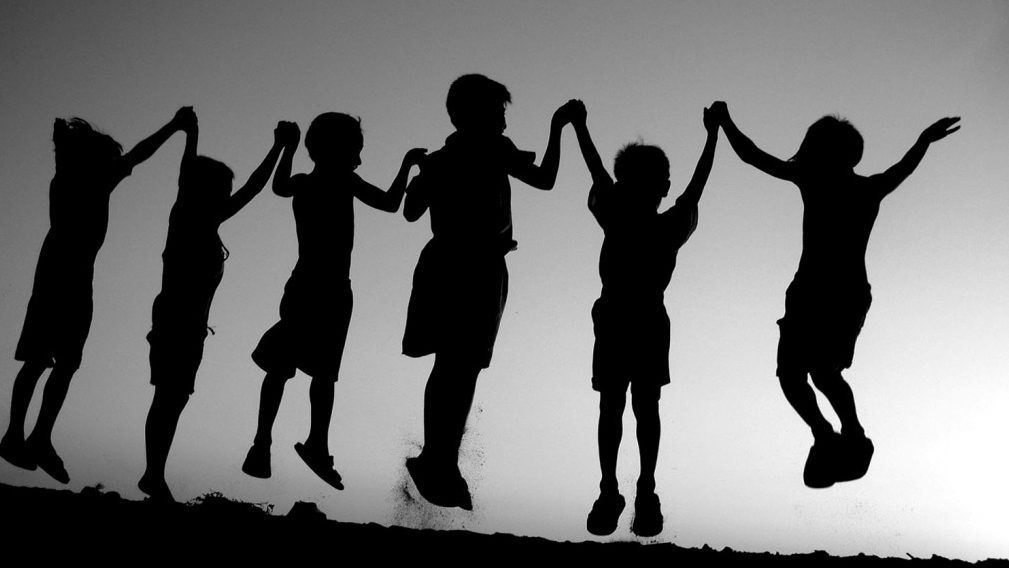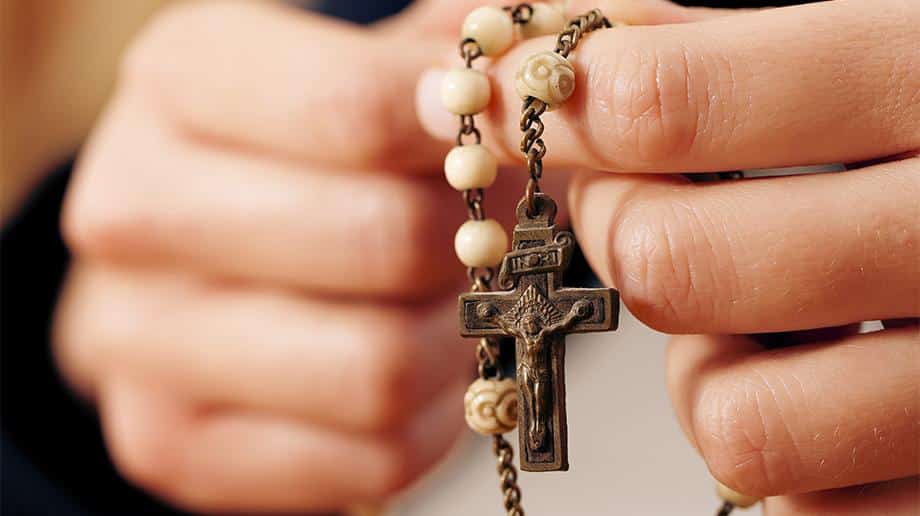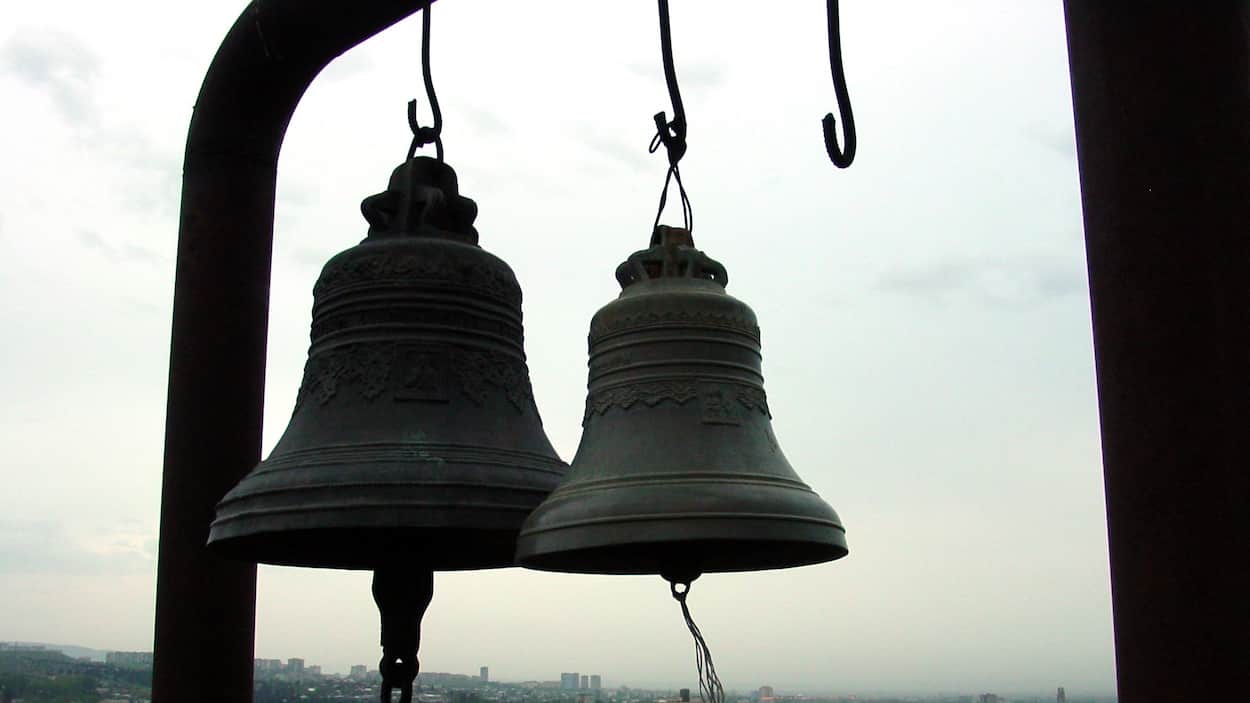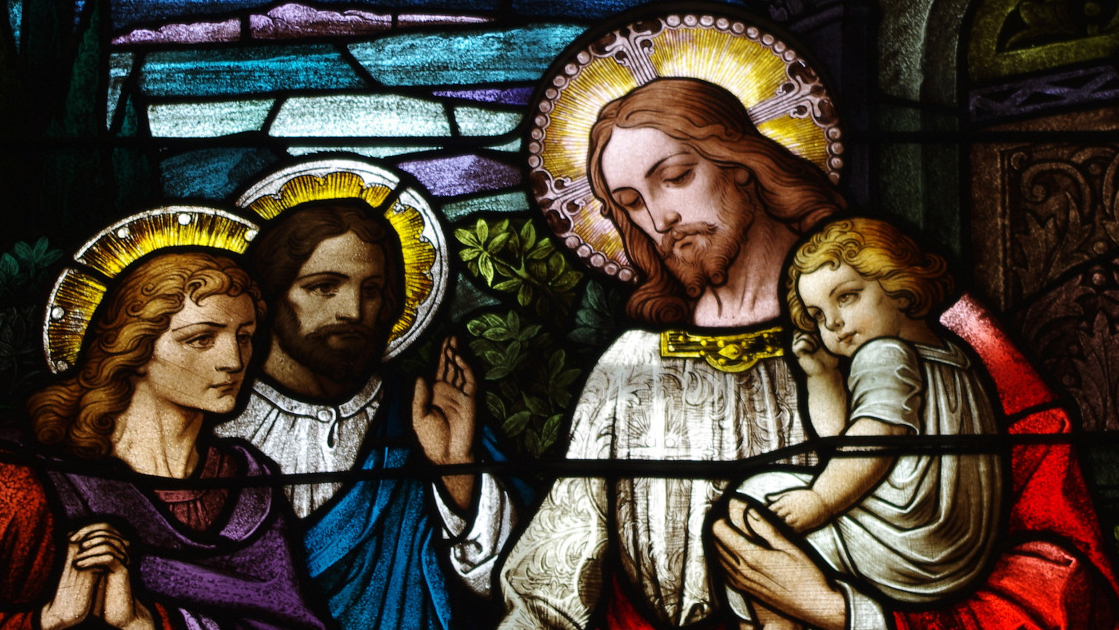Everyone who has regular interaction with children is helping determine what sort of adults they’ll be; this is obviously most true of parents, but all of us must try to be a positive influence. As someone once said, “There are only two lasting bequests we can hope to give to our children. One of those is roots, the others is wings” (Hodding Carter). In other words, we must help young people know where they’re from, and assist them in discovering where they’re going; we must teach them of their dignity as children of God, and encourage them to pursue their dreams while answering the Lord’s call or plan for their lives, whatever it may be. In this regard, the support and encouragement of mothers is especially important. Abraham Lincoln, for instance, used to say, “All that I am or ever hope to be I owe to my sainted mother,” and many other famous people have expressed similar sentiments. Mothers give life to their children in a physical sense, and this must also be true in an emotional and spiritual sense.
Mothers, of course, are very often quiet heroes—and sometimes it’s little short of miraculous they aren’t pushed beyond their breaking points. Once there was an army colonel transferred to Germany, and his long-suffering wife was left in charge of supervising their nine children, packing up all their belongings, and getting them on a flight to Germany, where they’d be living the next two years. At the airport, a shocked customs agent, seeing the mounds of luggage and the nine restless or crying children, all under the age of eleven, asked the weary and distracted woman, “Ma’am, do all these children and luggage belong to you?” “Yes,” she admitted with a sigh; “they’re all mine.” The agent then began his routine interrogation: “Ma’am, do you have any weapons, contraband, or illegal drugs in your possession?” The army wife looked him in the eye and answered calmly, “Sir, if I’d had any of those items, I would have used them by now!” (She was allowed to pass through without having to open a single suitcase.)
As someone once noted, “All mothers are physically handicapped—they only have two hands.” Moreover, as one mom remarked to another, “If it was going to be easy to raise kids, it never would have started with something called labor.” Society’s elite may not understand or appreciate the difficulties and importance of motherhood, but people who know what’s really important certainly do. Once at a party a highly successful female attorney, with a touch of condescension, asked a homemaker, “And what is it you do, dear?” Without batting an eye, the mother answered in a professional-sounding voice, “I am socializing two homo sapiens into the dominant values of the Judeo-Christian tradition in order that they might be instruments for the transformation of the social order into the teleologically prescribed utopia inherent in the eschaton.” The attorney’s jaw dropped, and when the mother asked her “And what is it that you do?,” the woman’s answer “I’m a lawyer” just wasn’t all that impressive.
By the way, the extensive vocabulary in the mother’s answer refers to the importance of religious faith—and so many saints and important religious figures credited their mothers in this regard. The great 20th century German theologian and religious scholar Karl Barth, for instance, was asked near the end of his career by a reporter, “Sir, you’ve written all these great volumes about God. . . . How do you know they’re all true?” The famous theologian smiled and, with a twinkle in his eye, answered, “‘Cause my mother said so!” As another 20th century German, St. Edith Stein, wrote, “To be a mother is to nourish and protect true humanity and bring it to development”—and because God made us to live with Him for all eternity, nurturing a child’s religious faith is obviously an essential element in helping him or her truly develop as a person.
Mothers have a special way of being there for their children. The late humorist and author Erma Bombeck once wrote, “All mothers have their favorite child. It is always the same one: the one who needs you at the moment. Whoever needs you for whatever reason—to cling to, to shout at, to hurt, to hug, to flatter, to reverse charges to, to unload on—but mostly just to be there.” Mothers can be very good at nurturing their children— but sometimes it can be a little hard for them to let go. I like the story about the mother who was concerned about her only son going off to college, and who wrote this letter to the university president: “Dear Sir: My son has been accepted for admission to your college and will soon be leaving me. I am writing to ask that you give your personal attention to the selection of his roommate. I want to be sure his roommate is not the kind of person who uses foul language, or tells off-color jokes, smokes, drinks, or chases after girls. I hope you will understand why I am appealing to you directly. You see, this is the first time my son will be away from home, except for his three years in the Marine Corps.”
Fathers, of course, would have an easier time accepting something like that, and they often have a valuable and needed perspective different from that of their wives. One dad was playing football with his young sons in the front yard, and in the process part of the lawn was being slightly torn up. When his wife came out to complain, he gently reminded her, “Dear, it’s our job to raise children, not grass.” Dads and moms often have their own way of looking at things, and children can benefit from both perspectives. As a general rule, mothers teach their children how to know and accept themselves, and fathers teach their children how to relate to the larger world.
An important part of preparing children for life in an often unfriendly and uncaring society is teaching them self-acceptance. There was once a young man with a large and highly-noticeable red birthmark on his face, but he never seemed embarrassed or defensive about it. His college roommate asked him how he was able to go about in public without being self-conscious, and he said, “Oh, it was my dad. You see, he told me from my earliest days, ‘Son, that’s where an angel kissed you, and he marked you out just for me. You are very special, and whenever we are in a group, I’ll know which one you are—mine.’” The young man added, “It got to where I felt sorry for people who didn’t have red marks across the front of their face.”
That’s a wonderful example of how parents—fathers in particular—can prepare their children for life in the bigger world outside the home; another example involves this story by a noted psychologist (Emmy Werner). She wrote, “One day . . . Sam’s father told him to stick with his math problem until he found the solution. As Sam worked, he could hear his father fiddling with an antique radio he was restoring. He had been at it for a week, taking the radio apart again. Sam learned from that lesson—and he stuck with his math problem and other challenges he faced right on into adulthood.”
Society today often downplays the importance of fatherhood, but that’s a foolish and shortsighted point of view—because a good relationship with one’s father is often the single-most important factor in whether a child grows up to become a moral, courageous, and loving adult. During World War II, after the Germans conquered Poland, they began oppressing and persecuting Polish Jews, and eventually started rounding them up for execution in Auschwitz and similar death-camps. Some Polish Catholics risked their lives to shelter fleeing Jews, but many others turned a blind eye, or even handed Jews over to the Nazis. After the war, a sociological study was commissioned to discover why there was such a wide range of reactions to the Jewish community of Poland in its time of need. One not surprising discovery is that those Catholic Poles raised in families where religion was more of a social experience, or a “Sunday only” expectation, turned out not to have much sympathy for desperate Jews trying to preserve life and liberty, whereas those Catholics who came from families that took their faith seriously were much more likely to act in a heroic manner. However, an even more central finding of the study involved fathers. In families where the fathers were the religious leaders of the household, setting an example for their children and being actively involved in their religious and moral upbringing, the children grew up to become courageous adults willing to do what was right under moral circumstances. In contrast, the Poles who refused to help the Jews tended to come from families in which the fathers played little or no role in their children’s religious education and formation.
Fathers can have tremendous influence on their children. A study in Switzerland found that if both parents were regular churchgoers, only 33% of the children would regularly attend church as adults. If the mother attended regularly, but not the father, only 3.4% of the children became regular churchgoers. However, if the father attended regularly, but not the mother, 44.2% of the children became regular churchgoers as adults. In other words, a father’s example of practicing his faith can be statistically 13 times as important as a mother’s. A father helps his sons learn what it is to be a man—both in terms of religious and moral values, and the proper treatment of women. However, a father’s influence can be equally important for girls. For example, one article on the subject (“The Search for a Phantom Father”) states that “most single women in the 25 to 35 age bracket who have affairs with married men have one thing in common—they seldom or never experienced meaningful interaction with their fathers.”
Dads can play a crucial role in helping their children learn to recognize and resist moral temptations, anti-social activity, and dangerous or self-destructive behavior. It’s a father’s job not only to protect his children, but to teach them the things they’ll later need to know in order to protect themselves. One author (Tony Evans) uses the following analogy: “Satellites are often used to show us where the enemy is located. They provide pictures and perspectives so that we are kept from ambushes and traps. They provide information critical for being victorious in war. Fathers are supposed to be like satellites, providing a perspective for their kids in order to keep them from being ambushed in illegitimate relationships.” In addition to this analogy, there’s a story about a father who went mountain climbing with his son. At a certain point, as they were ascending the slope, the father stopped to consider which direction would be safe to take. He heard his son say, “Choose a good path, Dad; I’m coming right behind you!”
This is what all fathers are supposed to do—though, of course, their guidance and advice must be genuine and authentic. It’s not enough just to talk the talk; they also have to walk the walk. A father should have high standards for his children—but in order to avoid being hypocritical, he should also have high standards for himself. There’s a joke in which one teenage boy complained to another, “My dad wants me to have all the things in life he never had when he was a kid—including straight As on my report card.” Another story involves a father criticizing his teenage son for not measuring up to his expectations; the man said, “Frankly, son, I’m ashamed of you—you still don’t have a job. When George Washington was your age, he was already working hard as a surveyor in the wilderness.” To that, the boy made the obvious response: “Yes, Dad, that’s true— and when he was your age, he was President of the United States.” Maybe the boy’s remark was a little disrespectful—but perhaps the father had it coming.
A father can’t succeed in his God-given mission without respecting his children; this is how they’ll learn to respect themselves, and respect others. In this regard, it’s particularly important for children to see their dad loving and respecting their mom. In addition to providing great emotional security, seeing this is how boys learn to respect women, and this is also how girls learn to become women who insist that men respect them. The happiest children tend to be those whose parents truly love each other—and in this area, it’s up to the husband and father to take the lead. Fathers are also influential in teaching their children to be generous and compassionate. In one study, a group of boys in a nursery were each given 18 pieces of candy, and told they could either keep all of it for themselves, or share it with their two closest friends. It turned out the boys who were most generous in sharing their candy were those who saw their fathers as the warmest and most affectionate; these boys also turned out to be kinder, and more cooperative and sympathetic, than the others.
—To be continued—








